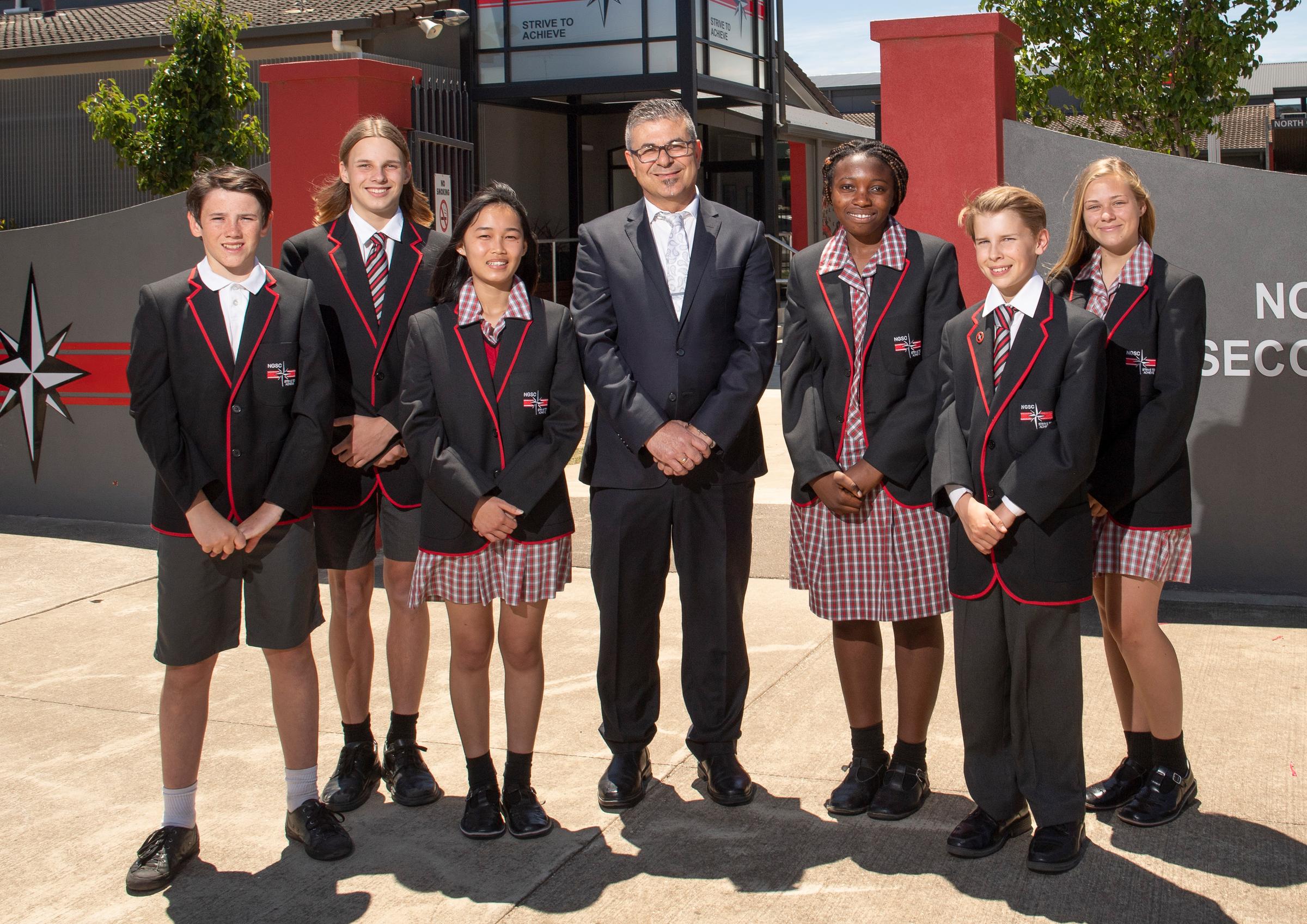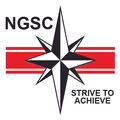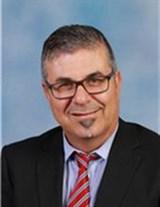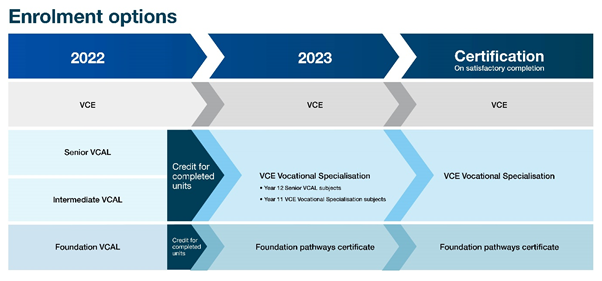PRINCIPAL'S REPORT

Nicholas Adamou
Principal
2021 Key Dates
| 25 June | End of Term Two - 1:30 pm finish |
| 12 July | Term Three commences |
| 20 July | School Council Meeting commences at 6:00 pm in the Main Staff Room |
| 26 July | Year 10 Careers Week commences |
| 27 July | Parent/Teacher Conferences 12:00 to 7:00 pm |
28 July to 30 July | Year 10 Careers Week continues |
| 29 July | Year 10 Course Counselling 2:00 pm to 6:00 pm |
| 30 July | Year 10 Course Counselling 8:00 am to 3:00 pm |
| 5 Aug | Year 9 Course Counselling 2:00 pm to 6:00 pm |
| 6 Aug | Year 9 Course Counselling 8:00 am to 3:00 pm |
| 17 Aug | School Council Meeting commences at 6:00 pm in the Main Staff Room |
| 30 Aug | Dental Health Van Visit |
| 30 Aug | Multicultural Committee Meeting |
End of Term 2
As we are at the end of Term 2 amidst lockdowns, restrictions, easing of restrictions, uncertainty and lots of hope, I have been reflecting on the resilience and energy of our students, parents and staff and on our student achievements that continue to occur.
We have all faced and had to solve problems that we couldn’t have foreseen eighteen months ago. If ever we need an example of transformational change, new learnings and resilience this period has provided it to all of us. The school community collaborative problem solving that has occurred has been inspirational.
It comes as no surprise that student and staff wellbeing is one of our priorities. Every school community has had a unique experience and we were no exception. We are all keenly aware that we may face similar circumstances again, and so we continuously review what works well and what could be further improved in terms of practical support and assistance provided to our school community during periods of remote learning, including communications and resources.
However, this is the time for reflection and celebration and at our school, we have lots to celebrate.
I take this opportunity to celebrate with you and your families the achievements of our students and staff. None of this can occur without the hard work and effort of the staff (teaching and non-teaching) who work diligently, plan and organise the learning & teaching that takes place on a daily basis within our vibrant college community. As I scan through the past newsletters, I can’t help being extremely proud of the personal qualities, achievements and the resilience our students once again demonstrated this semester.
School and self-pride are central to everything we do. We bring together a collaborative community of practice, committed to providing students with the tools they need not only to deal with the pandemic and life’s challenges, but also to teach them the skills required to lead a fulfilling life. Our staff and students are proud to be part of the school community and they are also very proud to be representing our community and its values in the wider community. I thank all of the teaching and non-teaching staff for their outstanding work they and their teams continue to achieve in our school.
As you all head towards the term break, I encourage you to think about the things that you have achieved and are proud of, as students at school or within your personal lives. What have you learned about yourselves and how you can improve in the future? My comment would be that your resilience, understanding, problem solving and adaptability have supported continuous improvement and learning throughout a really challenging period.
Wishing you all a restful break with your families and friends and hopefully if you are planning to take time away for the term vacation, that it will be possible. Please keep safe and enjoy your time off.
Term Three begins on Monday, 12 July.
Senior Secondary Certificate Reform
Victoria is transforming the delivery of senior secondary education with the introduction of a single senior secondary certificate that will offer greater access to quality vocational and applied learning pathways for all students. The senior secondary education reforms aim to provide access to education and training that is relevant, engaging and that delivers in-demand skills for the future world of work, ensuring that students can access education that leads to employment.
Next year students will still be able to enrol in either the Victorian Certificate of Applied Learning (VCAL) or the Victorian Certificate of Education (VCE). The following year, in 2023, VCAL students will be enrolled in the new VCE Vocational Specialisation or the new foundation pathways certificate which will be introduced to replace Foundation VCAL.
The VCE Vocational Specialisation will be recognised internationally, be valued by employers and will build on the strengths of VCAL including providing:
- flexible timetables that allow students to study at school, TAFE and work
- opportunities to experience real-life workplaces
- subjects that will build students skills and prepare them for life after school
- greater access to high quality VET learning, either in school, a neighbouring school or a local TAFE
The new certificates are part of a suite of 38 reforms recommended in the Review into Vocational and Applied Learning Pathways in Senior Secondary Schooling [Firth Review] to lift the quality and perception of vocational education and help more students access high-quality applied learning programs.
Course selection in 2022
We are supporting all students in their course selections for 2022 and are providing the following advice and information to students considering a VCAL pathway.
If students are studying VCAL in 2022 they will transfer into the VCE Vocational Specialisation with credit for completed VCAL subjects in 2023. In 2023, students will continue to study Senior VCAL subjects in the new certificate as part of the implementation process. At the end of 2023, these students will be awarded the VCE Vocational Specialisation if they meet the requirements.
Students who are studying Foundation VCAL over multiple years, including in 2022, will transfer into a new foundation pathways certificate in 2023 with credit for completed subjects. These students will study the new foundation subjects and graduate with the foundation pathways certificate.
This approach provides assurance and clarity to current Year 10 students some of whom will be among the first cohort to receive a VCE Vocational Specialisation certificate in 2023.
The following diagram sets out the senior secondary pathways for students commencing the VCE or VCAL in 2022.
* Note: Students can also move between certificates
If you would like to talk further about these changes please contact, Ms Caroline Makin or Ms Visnja Perin, Careers Counsellors. To learn more about Victoria’s senior secondary certificate reform, you can email the Senior Secondary Reform Team.
North Geelong Secondary College as a Learning Community - What Is a Professional Learning Community?
“Richard DuFour”
The idea of improving schools by developing professional learning communities is currently in vogue. People use this term to describe every imaginable combination of individuals with an interest in education—a grade-level teaching and learning team, a school committee, a high school department, an entire school district, a state department of education, a national professional organisation, and so on. In fact, the term has been used so ubiquitously that it is in danger of losing all meaning.
The professional learning community model has now reached a critical juncture, one well known to those who have witnessed the fate of other well-intentioned school reform efforts. In this all-too-familiar cycle, initial enthusiasm gives way to confusion about the fundamental concepts driving the initiative, followed by inevitable implementation problems, the conclusion that the reform has failed to bring about the desired results, abandonment of the reform and the launch of a new search for the next promising initiative. Another reform movement has come and gone, reinforcing the conventional education wisdom that promises, “This too shall pass.”
The movement to develop professional learning communities can avoid this cycle, however, educators need to reflect critically on the concept's merits. What are the “big ideas” that represent the core principles of professional learning communities? How do these principles guide our school’s efforts to sustain the professional learning community model until it becomes deeply embedded in the culture of the school?
NGSC Learning Communities ensure that:
Students Learn
The professional learning community model flows from the assumption that the core mission of formal education is not simply to ensure that students are taught, but to ensure that they learn. This simple shift—from a focus on teaching to a focus on learning—has profound implications to our school community.
There is a teacher Culture of Collaboration
Educators who are building a professional learning community recognise that they must work together to achieve their collective purpose of learning for all. Therefore, they create structures to promote a collaborative culture. The school’s PLC (Professional Learning Communities) model lends itself to provide time to groups of teachers to work together in a systematic process analysing and improving their classroom practice.
There is A Focus on Results (data)
Professional learning communities judge their effectiveness on the basis of results/data. Working together to improve student achievement becomes the routine work of everyone in the school. Every teacher team participates in an ongoing process of identifying the current level of student achievement, establishing a goal to improve the current level, working together to achieve that goal and providing periodic evidence of progress.
Child Safe Standards: Creating a safe environment
North Geelong Secondary College is a child safe school/organisation that aims to comply with Ministerial Order No. 870 - Child Safe Standards, which came into effect 1 August, 2016.
The school is committed to the safety and wellbeing of all children and young people and this is the primary focus of our care and decision-making. We have a zero tolerance for child abuse.
NGSC is committed to providing a child safe environment where children and young people are safe and feel safe, and their voices are heard about decisions that affect their lives. Particular attention is paid to the cultural safety of Aboriginal children and children from culturally and/or linguistically diverse backgrounds, as well as the safety of children with a disability.
All NGSC staff members have a responsibility to understand the important and specific role he/she plays individually and collectively to ensure that the wellbeing and safety of all children and young people is at the forefront of all they do and every decision they make.
In addition, the school has a Wellbeing Centre/Hub with a number of full time staff members working with the students ensuring they are building resilience skills and having their wellbeing needs addressed. Together with the Doctors in Schools Program the school Wellbeing Team works with a number of external agencies such as The Geelong Project and other organisations utilising their expertise to improving our students’ wellbeing, ensuring they feel safe and able to be productive in a caring learning and teaching environment.
Child Safety, Code of Conduct
NGSC is committed to the safety and wellbeing of children and young people. Our school community recognises the importance of, and a responsibility for, ensuring our school is a safe, supportive and enriching environment which respects and fosters the dignity and self-esteem of children and young people, and enables them to thrive in their learning and development.
This Code of Conduct aims to protect children and reduce any opportunities for child abuse or harm to occur. It also assists in understanding how to avoid or better manage risky behaviours and situations. It is intended to complement child protection legislation, Department policy, school policies and procedures and professional standards and codes or ethics, as these apply to staff and other personnel.
The NGSC Principal and the Leadership Team fully support the implementation and monitoring of the Code of Conduct, and plan, implement and monitor arrangements to provide inclusive, safe and orderly schools and other learning environments. The NGSC Principal and the Leadership Team also provide information and support to enable the Code of Conduct to operate effectively.
All staff, contractors, volunteers and any other members of the school community involved in child-related work are required to comply with the Code of Conduct by observing expectations for appropriate behaviour below. The Code of Conduct applies in all school situations, including school camps and in the use of digital technology and social media.
Acceptable behaviours
As staff, volunteers, contractors, and any other members of the school community involved in child-related work individually, we are responsible for supporting and promoting the safety of children by:
- upholding the school’s statement of commitment to child safety at all times
- treating students and families in the school community with respect, both within the school environment and outside the school environment, as part of normal social and community activities
- listening and responding to the views and concerns of students, particularly if they are telling you that they, or another child, has been abused or that they are worried about their safety/the safety of another child
- promoting the cultural safety, participation and empowerment of Aboriginal and Torres Strait Islander students
- promoting the cultural safety, participation and empowerment of students with culturally and/or linguistically diverse backgrounds
- promoting the safety, participation and empowerment of students with a disability
- reporting any allegations of child abuse or other child safety concerns to the school’s Leadership Team
- understanding and complying with all reporting or disclosure obligations (including mandatory reporting) as they relate to protecting children from harm or abuse.
- if child abuse is suspected ensuring, as quickly as possible, that the student(s) are safe and protected from harm.
Unacceptable behaviours
As staff, volunteers, contractors, and any other member of the school community involved in child-related work we must not:
- ignore or disregard any concerns, suspicions or disclosures of child abuse
- develop a relationship with any student that could be seen as favouritism or amount to ‘grooming’ behaviour (for example, offering gifts)
- exhibit behaviours or engage in activities with students which may be interpreted as abusive and not justified by the educational, therapeutic, or service delivery context
- ignore behaviours by other adults towards students when they appear to be overly familiar or inappropriate
- discuss content of an intimate nature or use sexual innuendo with students, except where it occurs relevantly in the context of parental guidance, delivering the education curriculum or a therapeutic setting
- treat a child unfavourably because of their disability, age, gender, race, culture, vulnerability, sexuality or ethnicity.
- communicate directly with a student through personal or private contact channels (including by social media, email, instant messaging, texting, etc) except where that communication is reasonable in all the circumstances, related to school work or extra-curricular activities or where there is a safety concern or other urgent matter
- photograph or video a child in a school environment except in accordance with school policy or where required for duty of care purposes
- in the school environment or at other school events where students are present, consume alcohol contrary to school policy or take illicit drugs under any circumstances.
IMPORTANT NOTE TO PARENTS
Whilst we welcome and encourage parents to attend the school for a wide range of reasons, it is important that all visits to the school come through our front office. Parents, guardians and visitors to the school are not to go directly to other areas of the school including different wings, classrooms or the technical support office. Our office staff will handle all parent and visitor enquiries and make the appropriate arrangements for you. Thank you for your cooperation on this matter.
Student accident insurance, ambulance cover arrangements and private property brought to schools
Parents/Carers and Guardians are reminded that the Department (DET) does not provide personal accident insurance or ambulance cover for students.
Parents and guardians of students, who do not have student accident insurance/ambulance cover, are responsible for paying the cost of medical treatment for injured students, including the cost of ambulance attendance/transport and any other transport costs.
In some circumstances, medical or other expenses will be paid by the Department where it is assessed that it is likely, in all the circumstances, that the Department is liable for negligent (careless) acts or omissions of its staff/volunteers.
Student accident insurance/ambulance cover policies are available from some commercial insurers, and can be obtained by school councils on a whole-of-school basis, or by parents/guardians for individual students.
Private property brought to school by students, staff or visitors is not insured and the Department does not accept any responsibility for any loss or damage.


